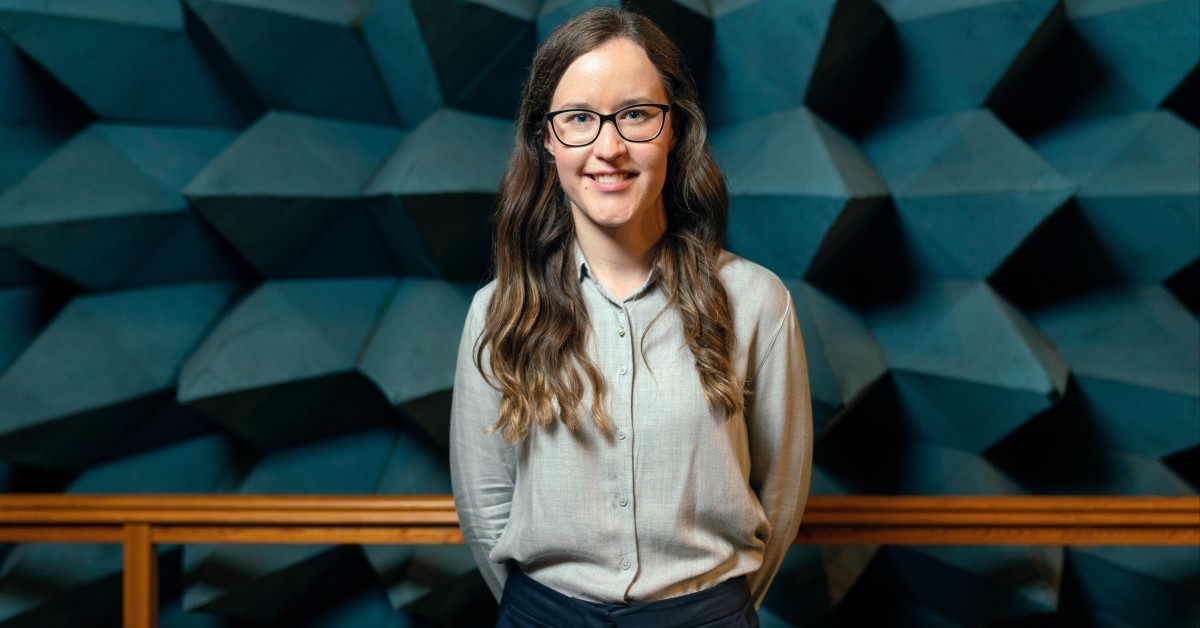
Information Architect vs. Data Architect [Difference Explained]
If you're deciding between data and information architecture, money likely [...]
![Data Science vs. Software Engineering [Difference Explained]](https://resources.noodle.com/wp-content/uploads/2023/11/thisisengineering-raeng-pIdteYOzGFY-unsplash-1024x536.jpg)
At first glance, data science and software engineering look quite similar. Both:
Data science and software engineering are not two names for one discipline, however. The critical difference between them is that software engineering produces products (e.g., applications and software suites). In contrast, data science produces insights.
The divide between these disciplines gets even more apparent when you look at related degree programs and the titles held by professionals in each. The more you know about how these fields differ, the easier it is to figure out which discipline is the right one for you.
In this article, we look at data science vs. software engineering and cover:
Data science is a branch of computer science that uses powerful software, custom algorithms, and tools like machine learning and predictive modeling to manipulate and identify patterns in data.
Admittedly, that’s a pretty vague definition, so some sources, like the University of California – Berkeley, describe data science in terms of what data scientists do. According to that institution, “Data scientists identify relevant questions, collect data from a multitude of different data sources, organize the information, translate results into solutions, and communicate their findings in a way that positively affects business decisions.” The University of Wisconsin – Madison puts it more succinctly, asserting that “a data scientist’s job is to analyze data for actionable insights.”
The applications of data science transcend industries because it can be used to solve very abstract problems. As the University of Virginia (UVA) points out in the guide to its online Master of Science in Data Science program, “From healthcare to government to business, data has never been so widely accessible or relied-upon to help people do their best work.”
| University and Program Name | Learn More |
|
Boston College:
Master of Science in Applied Analytics
|
|
|
Merrimack College:
Master of Science in Data Science
|
Software engineering is also a branch of computer science. It uses programming languages like Java, Python, C++, SQL, and Scala to build applications to solve problems or meet user requirements. That’s not vague at all because it’s easy to describe what software engineers do. They build software.
There’s a misconception, however, that software developers spend all their time writing code. The reality is most spend fewer than four hours each day coding.
Software engineering also has its branches, which include:
Some professionals in software engineering do that and more—particularly if they work for small software companies. Others specialize in one facet of the software engineering lifecycle, like QA or product management.
Plan on going to graduate school if you want to become a data scientist. You’ll almost certainly need a Master of Science in Data Science (MSDS) to advance because 90 percent of data scientists have advanced degrees, and 46 percent of those have PhDs. In other words, getting an undergraduate degree is just step one.
There still aren’t many undergraduate data science degree programs. Most professionals launch their data science careers with degrees in data analytics, data engineering, applied statistics, or computer science. However, it’s not a bad idea to major in data science if there’s a bachelor’s program that catches your eye.
This is a highly technical discipline, and colleges and universities with undergraduate data science programs tend to be selective. They look for strong grades, competitive standardized test scores, and extracurricular experiences demonstrating an interest in and aptitude for programming and technology.
Full-time 120-credit Bachelor of Science in Data Science (BSDS) programs typically take four years to complete. The majority of those credit hours are devoted to coursework, but students may also spend some time on project work and may have to complete an internship.
Tufts University is one of the few well-known computer science schools with a dedicated BSDS program. Students take a full load of liberal arts courses plus core classes covering topics like:
There’s a lot you can do with a master’s in data science. According to Stevens Institute of Technology‘s guide to its online Master of Science in Data Science (MSDS), the degree prepares “students for careers in fintech, business intelligence and analytics, academia, and database management, as well as government positions requiring strong skills in data analysis.”
Don’t assume you have to pay top dollar for a top-tier program. There are many affordable data science degree programs, including affordable online data science master’s programs.
The top data science master’s programs (a group that includes online MSDS programs) are very selective. They look for applicants with significant professional or research experience in analytics, computer science, or related technical fields.
The two-year full-time master’s is alive and well in the data science world. There are very few accelerated data science master’s programs. Those that do exist are often designed for narrow audiences (e.g., promising students in a specific bachelor’s program or students with other advanced degrees).
UVA’s master’s in data science curriculum is pretty typical. Students take courses like:
In many technical fields, a doctorate is only useful in academic or research-focused careers. Data science is an outlier. Plenty of data scientists in the corporate world have doctorates—and many employers prefer to hire PhDs.
This is a degree for accomplished professionals and academics. Admission requirements vary from school to school, but in general, colleges and universities with data science doctorate programs look for candidates with standout professional research experience. In some cases, schools only admit applicants with one or more graduate degrees.
PhD in Data Science programs can last anywhere from three years to five years or more. Most of that time is spent not in classes but conducting original research or working on a large-scale project.
It’s common for PhD students to design a unique program of study by choosing from elective courses related to their areas of research.
You may be wondering whether you need a degree to work in software engineering. The answer is a confusing maybe. There are software engineering bootcamps that teach software engineering for beginners and can help you understand what makes a great software engineer. You may not be able to advance past coding positions with just a bachelor’s degree, however.
Bachelor of Science in Software Engineering (BSSE) programs are relatively uncommon because undergraduate computer science programs fill the same niche.
This is another technical degree, and colleges and universities look for applicants with a demonstrable interest in and aptitude for computing along with the usual high GPA and competitive SAT scores.
Bachelor’s-level software engineering degree programs usually last four years, during which students complete about 120 credit hours of coursework and project work. Students in some programs also complete internships.
Students in BSSE programs take the usual liberal arts classes plus major courses like:
The Master of Science in Software Engineering (MSSE) isn’t the only master’s-level software engineering degree. You might pursue a:
There are two kinds of software engineering master’s programs. The first is designed for seasoned software professionals with programming and development skills. Applicants usually have bachelor’s degrees in software engineering or closely related fields and tech experience. The second is for applicants from other fields looking to transition into application development. In these programs, undergraduate GPA, GRE scores, and recommendations carry more weight.
The typical 30-credit MSSE program lasts about two years, though accelerated programs can be completed in just 16 to 18 months. Students in part-time on-campus and online software engineering degree programs may take three or more years to graduate.
Students pursuing a master’s in software engineering take core courses like:
Programs that train the most successful software engineers often teach soft skills in addition to tech skills. You’ll need both if you want to work in management.
You can climb to the top of the software ladder with a master’s, but if you want to do research related to the evolution of software development, you’ll almost certainly need a PhD.
Doctoral-level software engineering programs are quite competitive. Programs at top tech schools look for applicants who are at the top of their game professionally and/or have publishing credits or patents.
Software engineering PhD programs can be completed in three years by exceptionally motivated students who begin their research in year one. Still, most students take between three and seven years to finish.
The curriculum in PhD in Software Engineering programs is often determined by the focus of each student’s research. When there is a set program curriculum, courses typically cover topics like:
These disciplines use some of the same techniques and tools, but they’re fundamentally different. Data science has particular applications that allow businesses, governments, and scientists to use what happened in the past and what’s happening in the present to predict the future. Software engineering is a discipline largely focused on building and maintaining high-quality applications. Programming, database architecture, and information security are a part of both, but professionals in these disciplines do very different things.
You might become a data scientist if you study data science, but there are many other data science jobs, including:
Average salaries in data science are relatively high because even entry-level data scientists are highly trained and have technical skill sets other analytics professionals don’t. The typical data scientist earns anywhere from $96,000 to $123,000, and that figure might be going up. According to the most recent Robert Half Technology Salary Guide, the median salary for data science roles in 2021 may increase to $129,000.
There are openings for data science professionals at all kinds of companies, but tech companies like these have the largest data-related workforces:
There are many roles in software beyond ‘engineer’ and ‘developer’, like:
Average salaries in software engineering are close to $90,000, which is much higher than the national average across occupations. Product managers earn about $10,000 more, and master’s degree holders earn almost $20,000 more. There are also roles in software engineering that pay quite a bit less, however, especially in QA.
The tech firms software engineers want to work for most include:
Only you can answer this question. Demand for both software engineers and data scientists will probably increase in the next few years, so you can expect job security in both fields. Data scientists and software engineers can work in a range of industries, so you aren’t limited to tech jobs. And both are paid quite well, so you’ll have a comfortable life regardless of which you choose.
All you need to do to figure out where you belong is consider your interests. You’ll be happiest in data science if you enjoy creating order out of chaos, don’t mind repetitive work, and have a knack for solving complicated mysteries. On the other hand, you should probably choose software engineering if you like creating something out of nothing, work well in a structured environment, and think coding is a great way to spend an afternoon.
Questions or feedback? Email editor@noodle.com

If you're deciding between data and information architecture, money likely [...]

All computer scientists can program, but not all programmers are [...]

Network administrator and network engineer are two different roles in [...]

Computer science is a broad discipline. Software engineering is a [...]

The difference between data analytics and data science isn't as [...]
Categorized as: Data Science, Information Technology & Engineering